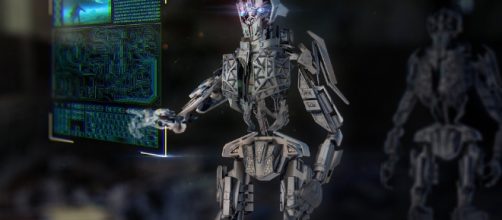A Chinese Robot dentist represents the rise and ubiquity of Artificial Intelligence (AI). AI has spawned several controversial and interesting questions — from replacing human doctors to totally destroying the human race. But will AI-driven medical systems replace human doctors soon?
AI-driven medical systems won’t be replacing human doctors soon, ABC News Australia noted. Instead of being a replacement, the technology will assist and help medical experts in the diagnosis of various illnesses through deep learning. By incorporating AI, many medical tasks and issues will be solved.
Eye doctors
One example of AI-driven technologies in the medical field is Google’s AI eye doctor. It detects signs of diabetes-related eye disease by recognizing fragile blood vessels that occur at the back of the eye in poorly controlled diabetes.
The tech innovation is currently working with real patients in various eye hospitals in India. Through the help of the Aravind Eye Care System, Google developed this retinal screening system.
Robot dentist in China
The most recent example is the AI-driven robotic dentist in China. The technology took the world by surprise when it successfully and independently performed an implant surgery on a living human patient. Chinese experts made a surgical breakthrough in dentistry when a robot dentist successfully implanted two new teeth into a woman’s mouth.
During the one-hour operation, the robot did the procedure autonomously and without any assistance from the human medical team who were observing the surgery.
The procedure was done with a 0.2-0.3mm margin of error, which is the required standard for the operation. According to China’s leading oral rehabilitation specialist Dr. Zhao Yimin, the robot combines the use of modern technology such as artificial intelligence and 3D printing, and the expertise of dentists.
The robot dentist was designed and developed through the collaboration of Beihang University’s Robot Institute in Beijing and the Fourth Military Medical University’s Stomatological Hospital in Xian. The technology took more than four years to perfect.
#RobotDentist is 1st to fit #implants in #patient’s mouth without any #HumanInvolvement | South #China #MorningPost https://t.co/Dg2URw5JZf
— Tony Kacubaj (@TonyKacubaj) September 23, 2017
Robotics in dentistry
The field of dentistry has been increasingly employing the use of AI and robotics to assist dentists with procedures, particularly in orthodontics operations and root canal surgery. According to South China Morning Post, robots are also used when training students and to address the shortage of qualified dentists in China. It is also useful in eliminating issues such as surgical error.
The publication added that the U.S. Food and Drug Administration (FDA) approved the use of robot Yomi in March.
Yomi was reportedly created to help or assist human surgeons in fitting implants.
Doctor Hazel
Aside from an AI-driven eye doctor and dentist, experts have also developed Doctor Hazel. It uses artificial intelligence to detect cancerous moles. However, Doctor Hazel is still in its early stages and is not yet ready to diagnose patients, Tech Crunch revealed.
Digitization in medicine
With the recent breakthrough, AI is definitely paving the way for more breakthroughs in the field of Medicine. In fact, AI-driven platforms and programs could help turn the healthcare system into a “patient-centric” structure, Fin24Tech noted.
Furthermore, artificial intelligence is also greatly “changing medical healthcare.” According to Discovery Health's deputy CEO Ryan Noach, AI could support doctors in “treatment decisions” through drug discovery, its efficiency in radiologic procedures and its ability to crowdsource medical data collection.
63% of #healthcare executives are investing in #ArtificialIntelligence & 74% plan to do so... https://t.co/jsM8bQdhHF @MikeQuindazzi #AI pic.twitter.com/9kYQ6GZt6f
— PwC Health (@PwCHealth) September 21, 2017
AI benefits in the medical field
In recent years, artificial intelligence has continually evolved and influenced various fields of sciences, particularly in the medical sector. Through AI, the world of medicine will never be the same again. With the introduction of digitization or digital health, the jobs of the doctors will also evolve.
The use of AI is still met with skepticism but medical AI could lead to more affordable and easily accessible healthcare for everyone. Experts said that these systems are cheaper to run, costing only a “fraction of a cent” per diagnosis.


